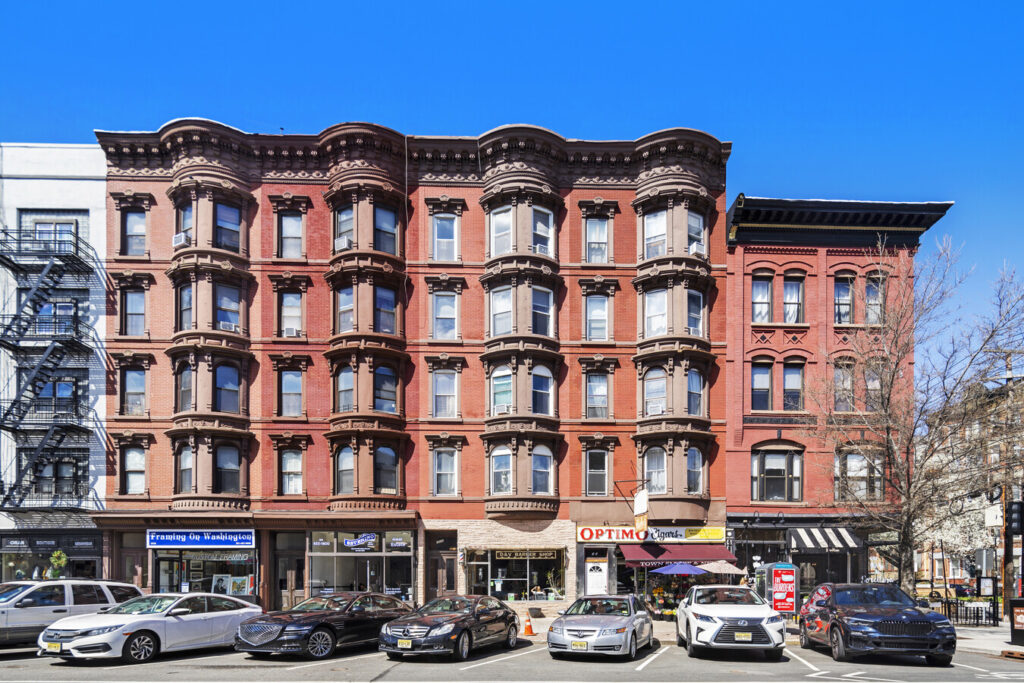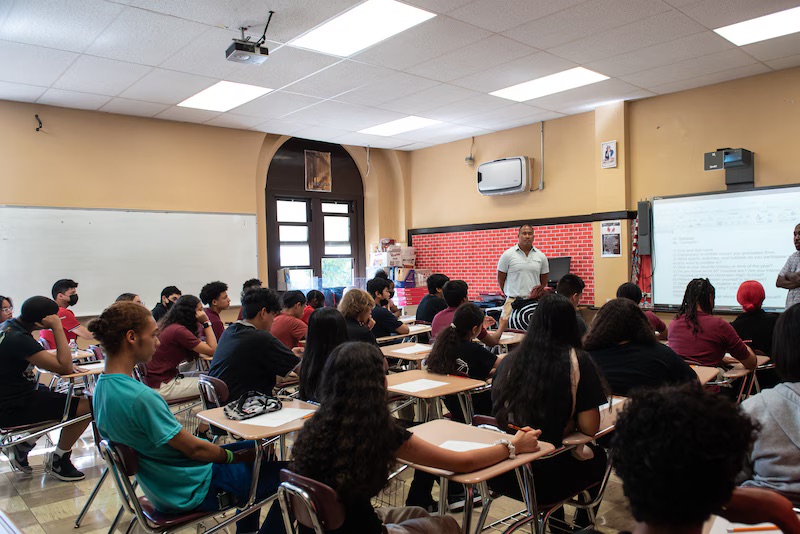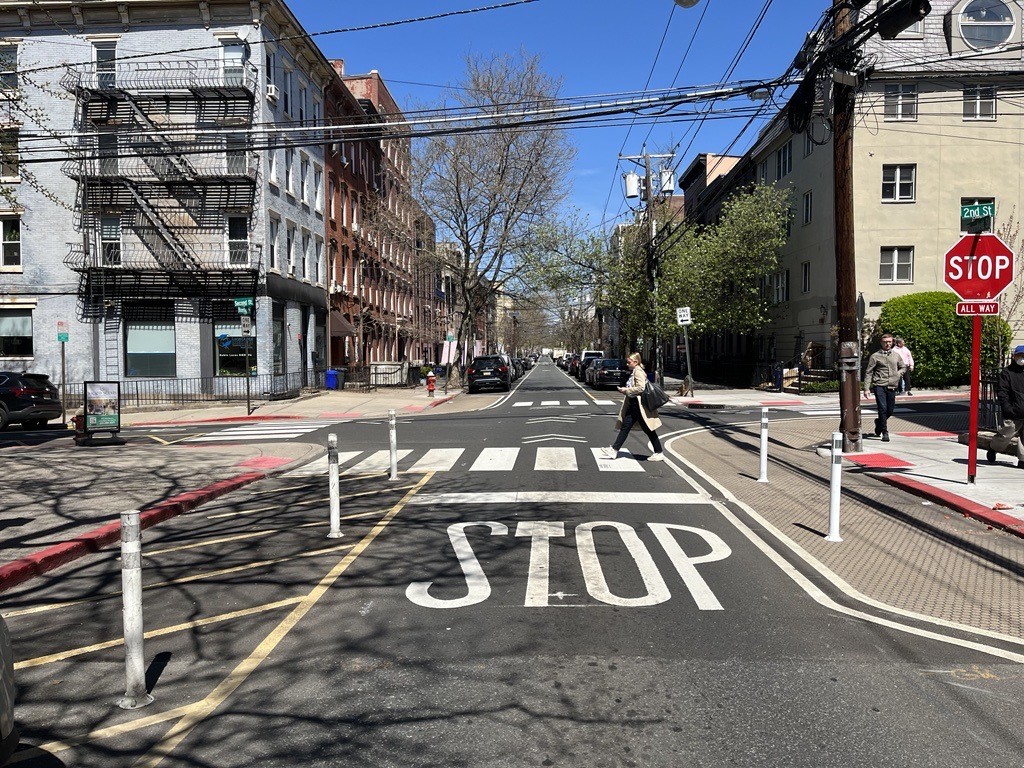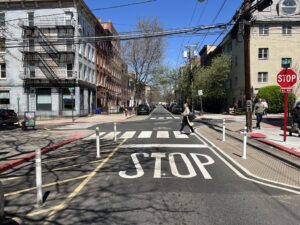Photo courtesy of loopnet.com
Traffic, parking and affordable housing—Hudson County and New Jersey have new updates regarding some of its top ongoing topics.
Check out what’s been happening.
Soon, Hoboken Won’t Let You Park For Free On This Day
Parking in Hoboken is difficult to find on any given day, however, on Sundays parking is free.
Residents and visitors had the luxury of enjoying free parking to stop by a bar for Sunday sports watching, a restaurant for date night, or even the waterfront for a scenic sunset. But now, the Hoboken City Council has voted to get rid of free Sunday parking in some Hoboken business areas.
After voting to introduce the policy at an August City Council meeting, a public hearing and final vote took place in September, which approved the removal of free parking on Washington Street starting in November.
“In an effort to improve parking availability by increasing the turnover of parking spaces along Washington Street for patrons of local businesses, the City of Hoboken will extend paid parking requirements to Sundays along Washington Street, beginning on Sunday, Nov. 17. This follows the Hoboken City Council’s adoption of an ordinance last month. The new policy will require payment for parking from 9 a.m. to 9 p.m., at a rate of $0.75 for 15 minutes or $3 per hour, seven days a week (previously six days a week),” said a Nixle alert.
Vehicles with a “Resident On-street Parking Permit” will continue to be excused from paying the meter in resident permit parking zones seven days a week. These areas can be described as “areas of the city that have, or are in close proximity to, a high concentration of retail or commercial uses on the ground floor.” This was stated in Councilwoman Tiffanie Fisher’s newsletter which was sent out on Sept. 3.
The exact areas that would be affected by the new change are still unknown.
Currently, Hoboken’s free Sunday parking pertains to certain business areas in the city, where both residents and visitors can park in available visitor parking spots as well as metered spots.
Annual Hoboken Halloween Parade Returns, But Drivers And Commuters Should Plan Ahead
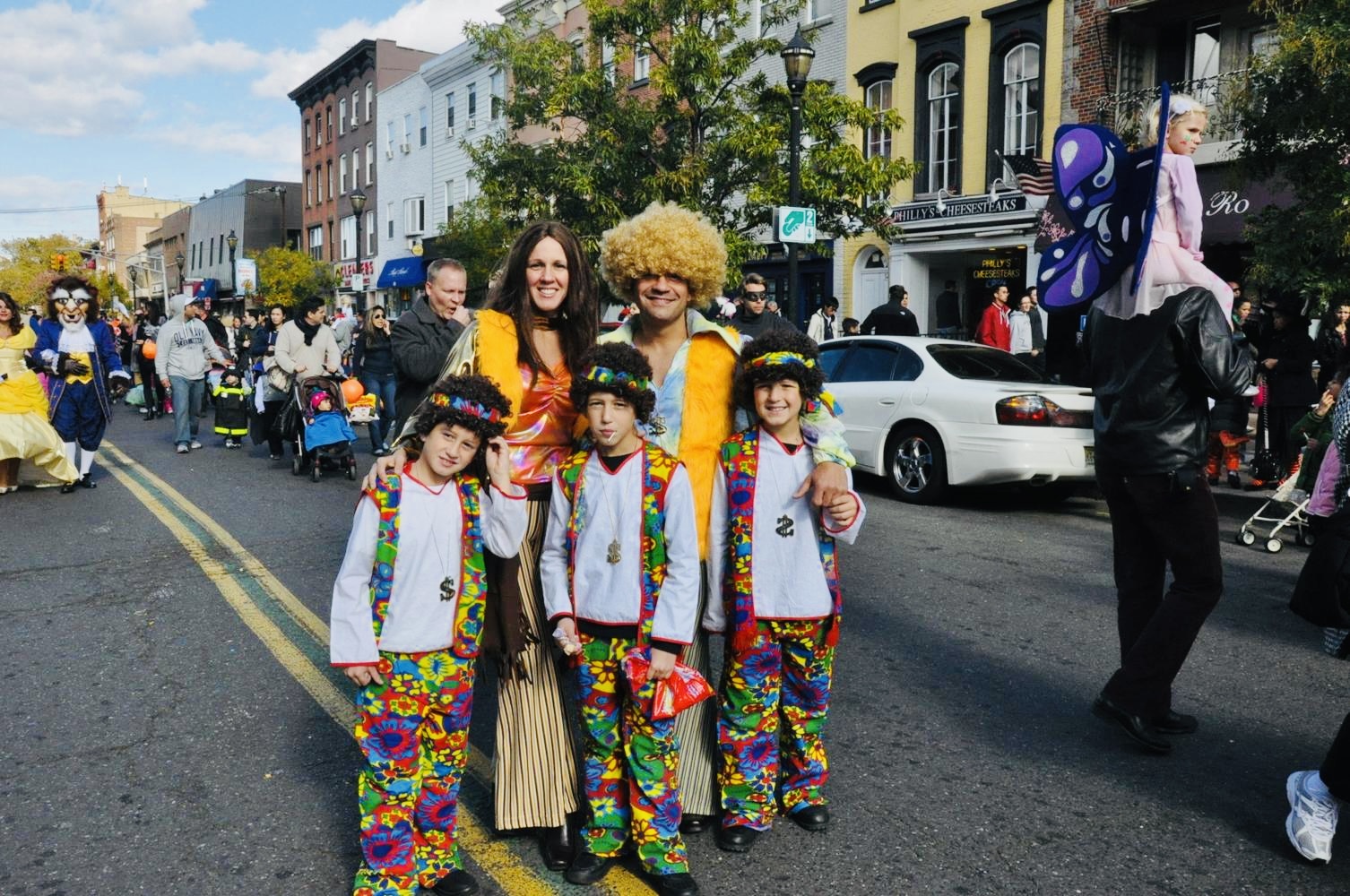
Trick-or-treating in Hoboken usually kicks off just after the city’s annual Ragamuffin Parade on Oct. 31 each year, which residents do not shy away from.
This year, the parade will start at 10th and Washington Street around 4 p.m., said Marilyn Baer, the city spokesperson.
Typically, the parade is a mix of residents in their costumes and bands. Businesses often give out candy in the afternoon and evening, along with many residents. The parade will make its way south on Washington Street, ending at Fifth Street.
The only thing missing from the 1963 tradition will be the costume contest, which Baer said is due to the declining attendance.
There will also be slight changes in traffic because of the parade. Cars and NJ Transit buses will be diverted.
“NJ Transit buses will run on an alternate route during the parade. Northbound buses will operate on Bloomfield Street and Southbound buses will operate on Hudson Street,” Baer added.
“The Hoboken Police Department reminds drivers to reduce their speed, be alert for trick-or-treaters, turn on headlights, and stop before crosswalks. The city of Hoboken does not permit block parties on Halloween and reminds residents to walk on sidewalks and to cross streets only in crosswalks. Avoid gathering, walking, or crowding in the streets. Officers will be forced to close streets when too many pedestrians create a safety hazard for themselves, and for drivers.”
The Ragamuffin Parade dates back to the late 1870s. Originally, it was a part of Thanksgiving celebrations. Children would wear either costumes or their parents’ clothes, giving them the appearance of ragamuffins.
The parade eventually became part of Halloween celebrations and goes on in a number of other cities.
Hudson County Healthcare Workers Need Support
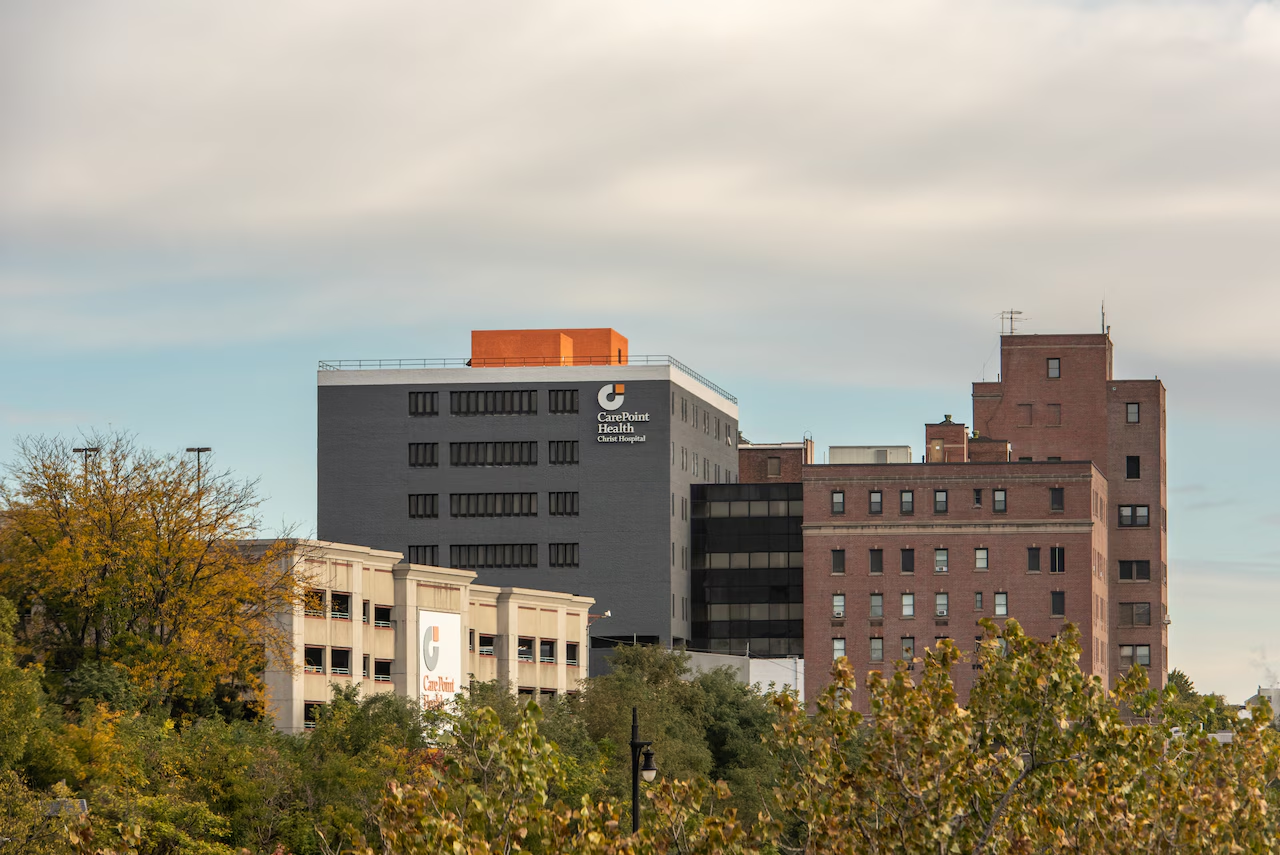
With the ongoing growing financial crisis and layoffs at CarePoint Health, unions representing employees at Hoboken University Medical Center and Christ Hospital are arguing and calling for solidity in their jobs and services.
Dozens of healthcare workers attended a rally last Tuesday, Oct. 22 to protest for a better working environment and job stability. It was organized by JNESO, District 1199J and the Committee of Interns and Residents. Hoboken Mayor Ravi Bhalla and Jersey City Mayor Steven Fulop were in attendance to support the workers.
“Healthcare in Hudson County is on life support in many ways … We’re at a point now where it is day to day – there’s no question about that,” said Mayor Fulop.
Recently, the Hudson County Board of Commissioners and the Hoboken City Council, passed resolutions asking the state to “keep the hospitals open by any means necessary,” according to the Hudson County View.
At a press conference earlier this month, state Governor Phil Murphy said he would not allow Hudson County to become “a healthcare desert.” CarePoint filed a notice in September about the possibility of 2,600 layoffs across its three hospitals: Bayonne Medical Center, Christ Hospital and Hoboken University Medical Center.
CarePoint reiterated in a statement to NJBIZ that they are dedicated to continue to serve its Hudson County communities, but they “need the support of the state and our local leaders to make it possible. The time to act is now.”
New Jersey Adds Affordable Housing Plan For 10 Hudson County Town
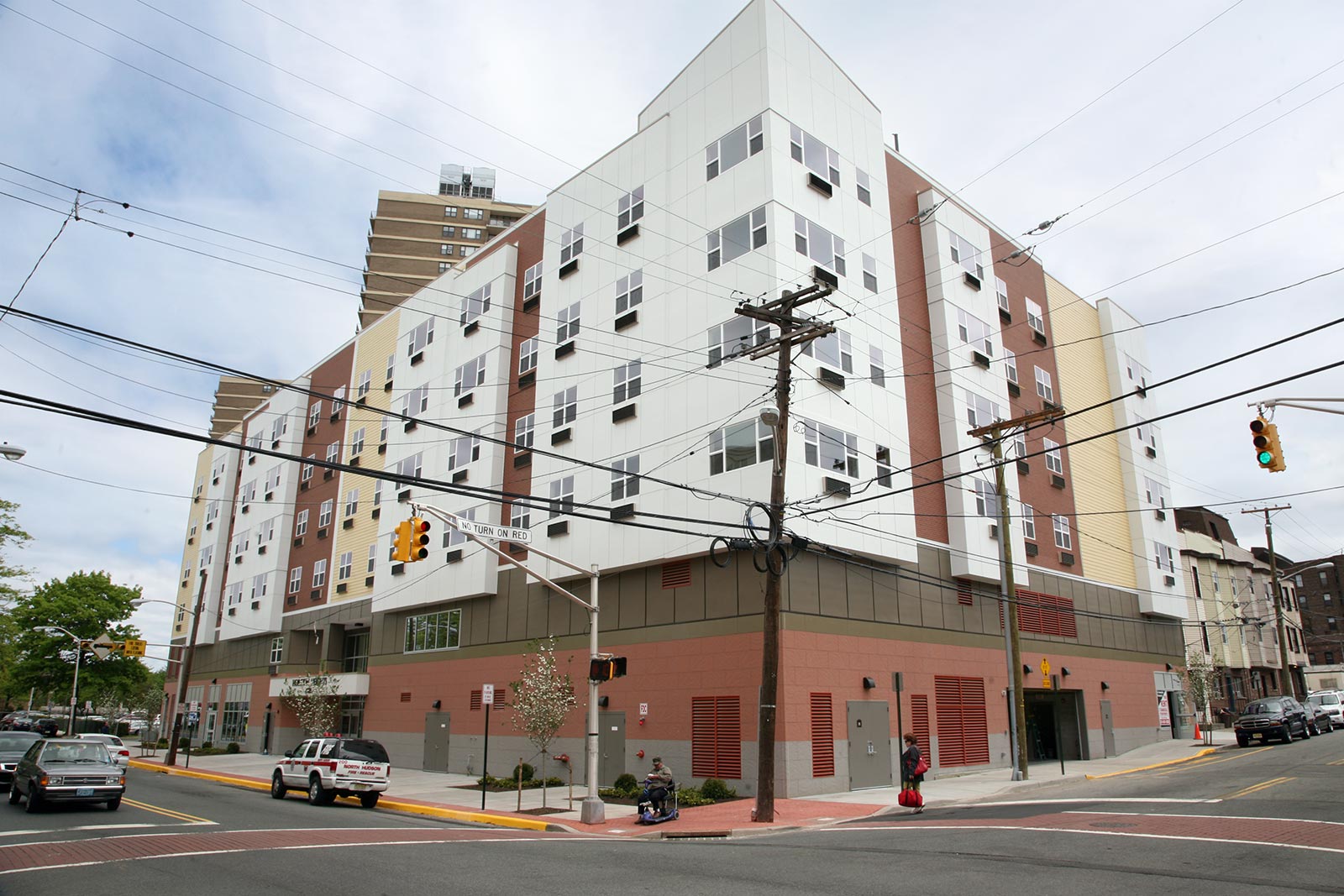
According to an affordable housing calculation from the state, Hudson County needs a lot more affordable housing units.
Affordable homes need to be built in 564 New Jersey municipalities, according to the state Department of Community Affairs. It’s broken down into two types: present need and prospective need.
Present means renovating current affordable housing units while prospective is creating new affordable housing.
In March, Governor Phil Murphy signed a law to fix the way the number of mandatory affordable units are decided for municipalities, under the state Supreme Court’s Mount Laurel doctrine and the New Jersey Fair Housing Act.
Here is what needs to be done with the Hudson County municipalities:
- Bayonne: Present need = 749, Prospective need = 0
- Guttenberg: Present need = 116, Prospective need = 56
- Harrison: Present need: 257, Prospective need = 0
- Hoboken: Present need = 126, Prospective need = 0
- Jersey City: Present need = 3,733, Prospective need: 0
- North Bergen: Present need = 596, Prospective need = 0
- Secaucus: Present need = 25, Prospective need = 1,000
- Union City: Present need = 2,088, Prospective need = 0
- Weehawken: Present need = 84, Prospective need = 0
- West New York: Present need = 1,173, Prospective need = 0
For New Jersey, a total of 65,410 current residences need to be rehabilitated (an average of 116 per town) and 80,798 over the next decade (about 143 per town). That is 146,208 residences across the state.
Adam Gordon, Executive Director of the Fair Share Housing Center, said this new requirement is “an opportunity for municipalities to prioritize sensible and equitable growth, redevelopment, and infrastructure investments that will benefit their communities for generations to come.”
“Housing shortages hurt the state’s overall economy — all the essential workers who keep our towns functioning need to live somewhere,” Gordon added.
Homelessness In Hudson County Spikes

One of the persisting and lingering effects of the lack of affordable housing is homelessness.
The NJ Counts 2024 survey revealed that the number of homeless in Hudson County went from 920 people to 1,168, representing a 27% increase. This survey is done once a year by the Monarch Housing Associates who measures the amount of individuals and families who are experiencing homelessness.
For Hudson County, part of the increased homelessness was connected to “eviction or risk of eviction”—which went from 122 in 2023 to 201 in 2024, a 65% increase—and “being asked to leave a shared home.”
“In a state that’s fair market rents are far higher than national averages this creates a crisis for persons in the state with low or very-low incomes making it incredibly difficult to find and secure affordable housing,” a member of the Monarch Housing Associates said.
Living expenses continue to rise throughout the U.S., but Jersey City has been dubbed one of the most expensive cities to rent in. Roughly 72% of Hudson County residents are reportedly renters, and a recent Rutgers study showed that 44% of renter households are “rent burdened.”
And looking deeper into the numbers, homelessness continues to primarily affect the Black and Hispanic community. Though the county has a 10.7% Black population, their homeless population is 41.7%. The Hispanic population is the county’s largest ethnic group, making up 42.4%, but their homeless is 52.7%.
Hudson County Executive Craig Guy expressed his initiative to increase affordable housing opportunities for anyone in need. The county has a number of shelters and emergency housing including PERC in Union City and St. Lucy’s in Jersey City, to name a few. A full list can be found here and resources can be found here.

